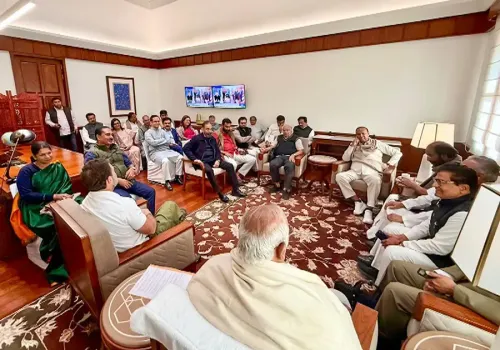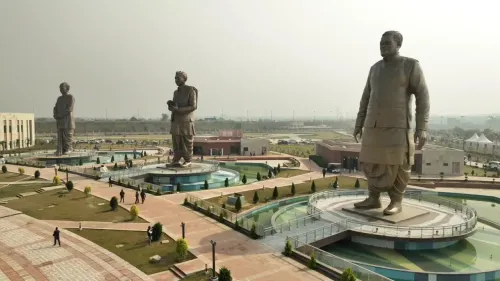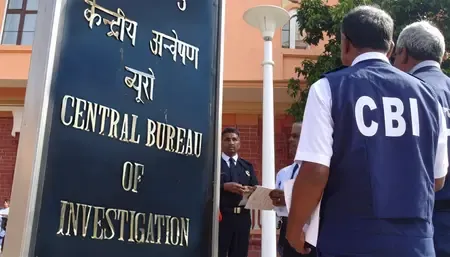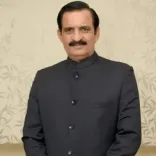Are Coaching Centres Becoming Black Holes for Talent? VP Dhankhar Raises Concerns in Kota
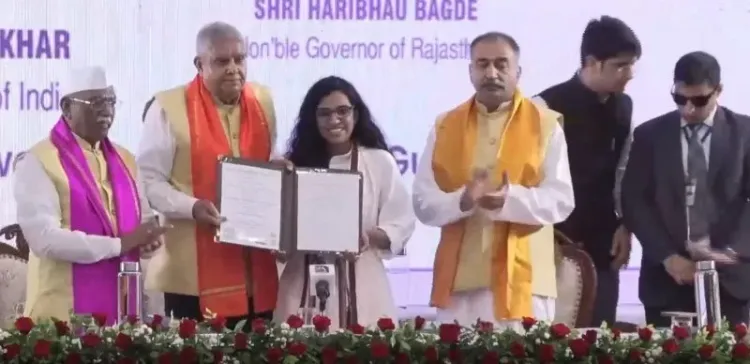
Synopsis
Key Takeaways
- Coaching centres are seen as detrimental to student mental health.
- There is a need for a shift towards technological leadership.
- Rote learning must be replaced with creative and critical thinking.
- Students should focus on knowledge over grades.
- Indigenous solutions are crucial for India's digital future.
Jaipur, July 12 (NationPress) On Saturday, Vice President Jagdeep Dhankhar presented a powerful critique of the prevailing coaching culture in India, labeling it a significant threat to both the education system and the mental health of students.
“Coaching centres have evolved into poaching centres. They have transformed into black holes for talent within regimented silos. The proliferation of coaching centres is alarming for our youth, who represent our future. We must confront this troubling issue that is detrimental to our education. It is unacceptable to allow our educational framework to be so compromised,” Dhankhar stated during the 4th Convocation Ceremony of the Indian Institute of Information Technology (IIIT) in Kota, Rajasthan.
Dhankhar went on to assert, “Nations will no longer face colonization through armies; it is now being replaced by algorithms. Our sovereignty will not be threatened by invasions, but by our reliance on foreign digital infrastructures,” he remarked.
The Vice President called for a fresh vision of patriotism based on technological leadership, stating, “We are entering a new era, an era of new Nationalism. Technological leadership represents the new frontier of patriotism. We must strive to be global leaders in this domain.”
He raised alarms about our dependence on imports in crucial areas such as defence, saying, “If we rely on technology-driven equipment from abroad, particularly in sectors like defence, that nation can paralyze us.”
Dhankhar elaborated on how global power dynamics are shifting in the digital era, stating, “The battlefield of the 21st century is no longer land or sea. The days of traditional warfare are gone. Our strength must now be defined by code, cloud, and cyber capabilities.”
“Among the 22 visual representations in the Indian Constitution, one depicts a Gurukul. We have historically valued the sharing of knowledge. Coaching centres should leverage their resources to transform into skill development hubs. I urge civil society and public representatives to recognize the urgency of this issue. They must unite to restore integrity in education,” he emphasized.
Dhankhar highlighted how the fixation on grades is undermining the essence of learning, stating, “The obsession with perfect scores and standardized tests has stifled curiosity, an intrinsic aspect of human intelligence. While the number of seats is limited, coaching centres are ubiquitous across the nation. They condition students for years, turning them into automatons, which can lead to numerous psychological issues.”
The Vice President encouraged students to transcend beyond grades, asserting, “Your report cards and scores will not define your worth. In the competitive world ahead, it is your knowledge and ability to think critically that will shape your identity.”
Addressing the digital landscape, he emphasized, “A smart application that fails to function in rural India is not genuinely smart. An AI model that cannot comprehend regional languages is inadequate. A digital tool that overlooks the disabled is unjust.”
Dhankhar motivated the youth to take charge in creating local solutions with global relevance, declaring, “The youth of Bharat must be the conscience keepers of the tech world. We should develop Bharatiya systems for Bharatiya users and extend their reach globally.”
He called upon Indians to spearhead the world in digital self-reliance, stating, “We must emerge as architects of our digital future and influence the trajectories of other countries. Our coders, data scientists, blockchain innovators, and AI engineers are the new nation builders. India, once a global frontrunner, cannot afford to remain a passive consumer of borrowed technologies. We used to lag decades behind; now the gap has shortened to weeks. We should be at the forefront of technology export now.”
Dhankhar firmly rejected the notion of treating education as an assembly line, stating, “We must abolish this assembly-line mentality, as it is perilous for our education system. Coaching centres contradict the principles of the National Education Policy, creating unnecessary barriers to growth and progress. Significant funds are spent on billboards and newspaper advertisements, financed by those who either take loans or who diligently work to secure a brighter future. This is not an optimal allocation of resources; these advertisements may be enticing, but they are an eyesore to our civilizational values,” he remarked.
He concluded with a pointed critique of the rote learning culture, stating, “We are encountering a crisis of cramming culture, which has turned vibrant minds into mechanical stores of fleeting information. There is no true absorption. There is no genuine understanding. This is creating intellectual zombies rather than innovative thinkers. Cramming leads to memory without meaning and degrees without depth.”
Rajasthan Governor Haribhau Bagade, Lt Gen (Retd) A.K. Bhatt, Chairperson of the IIIT Board of Governors, Director Prof N.P. Padhy, and other dignitaries attended the convocation ceremony.


